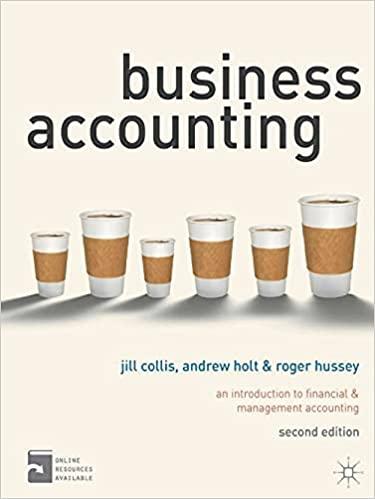Answered step by step
Verified Expert Solution
Question
1 Approved Answer
Please fill in the blanks Budgets? A _ _ _ _ _ _ _ _ _ _ _ _ is a detailed quantitative plan for
Please fill in the blanks Budgets?
A is a detailed quantitative plan for acquiring and using financial and other resources over a specified forthcoming time period.
o A companys budget ordinarily covers a period corresponding to its fiscal year.
o Some companies also use a which is a month budget that continuously rolls forward.
Budgets are used for two distinct purposes:
o involves developing objectives and preparing various budgets to achieve those objectives.
o involves the steps taken by management to increase the likelihood that the objectives set down at the planning stage are attained and that all parts of the organization are working together toward that goal.
Why Do Organizations Create Budgets?
Encourage managers to for the future.
Communicate throughout the organization.
Budgets force managers to think about and plan for the future.
Allocate within the organization where they can be used most effectively.
the plans and activities of departmental managers.
Uncover potential before they occur.
From a control standpoint, organizations compare their budgets to actual results to:
o the efficiency and effectiveness of operations.
o and employees
How Do Organizations Create Budgets?
Companies usually create budgets by relying on some combination of budgeting and budgeting.
Topdown approach:
o initiate the budgeting process by issuing profit targets.
o Then, lowerlevel managers are directed to prepare budgets that meet those targets.
This approach often lowerlevel managers because it ignores their knowledge and opinions.
Additionally, the targets imposed by toplevel managers may be or
Selfimposed approach:
o Also known as
o Prepared with the full cooperation and participation of managers at levels.
o It is a particularly useful approach if the budget will be used to evaluate managerial performance.
o The advantages of selfimposed budgets include:
It shows respect for the opinions of
It leverages lowerlevel managers knowledge to provide estimates than those imposed by toplevel managers who have less intimate knowledge of daytoday operations.
It increases lowerlevel managers achieve their own selfimposed goals.
It lowerlevel managers to take ownership of the budget and be accountable for deviations from it
o Selfimposed budgets should be reviewed by higher levels of management. Without such a review, selfimposed budgets may have too much or may not be aligned with overall strategic objectives.
The Master Budget: An Overview
The master budget consists of a number of separate but budgets.
o The shows the expected sales for the budget period expressed in dollars and units.
It is usually based on a companys
All other parts of the master budget are dependent on the sales budget.
o The is prepared after the sales budget.
It lists the number of units that must be produced during each budget period to meet sales needs and to provide for the desired ending inventory.
o The production budget in turn directly influences the and which in turn enable the preparation of the
o These budgets are then combined with data from the sales budget and the to determine the cash budget.
o The is a detailed plan showing how cash resources will be acquired and used over a specified time period.
All of the operating budgets have an impact on the cash budget.
o The last step of the process is to prepare a budgeted and a budgeted
To help you see the big picture, keep in mind that the schedules in a master budget are designed to answer the questions.
Step by Step Solution
There are 3 Steps involved in it
Step: 1

Get Instant Access to Expert-Tailored Solutions
See step-by-step solutions with expert insights and AI powered tools for academic success
Step: 2

Step: 3

Ace Your Homework with AI
Get the answers you need in no time with our AI-driven, step-by-step assistance
Get Started


